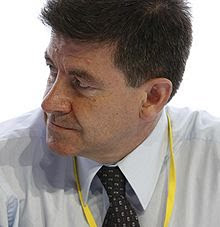The Irish Times
Sat, Jun 26, 2010

ROME – Italians marched through cities and towns yesterday in a general strike protesting an austerity budget they say bleeds workers but spares the rich.
The left-leaning CGIL union called the strike in an effort to force prime minister Silvio Berlusconi’s government to redraft a €25 billion austerity package he says is an essential part of European efforts to save the currency.
The website of the CGIL, Italy’s largest union, said more than one million people took part in various demonstrations in large and small cities around the country.
About 100,000 people, according to union estimates, demonstrated in the central city of Bologna, capital of a traditionally leftist area with a strong labour movement.
In Rome, a long line of protesters blowing whistles and waving red CGIL flags snaked past the Colosseum. Organisers put the turnout at 40,000 people.
In Milan, the CGIL said 80,000 attended a rally, but police estimated the figure at 35,000.
Many of Friday’s marchers also bore placards against car maker Fiat, which is wrangling with unions over plans to improve labour productivity at a plant in southern Italy.
“We say No to this budget. It is wrong, unjust, it stunts growth, it does not kick-start production, it doesn’t touch the rich and it punishes workers,” said union leader Fulvio Mammoni to a crowd of tens of thousands in Naples.
After months of telling Italians they were immune to a Greek-style debt crisis, Mr Berlusconi’s cabinet in May approved an austerity plan, including cuts to funding for municipalities and freezing of public sector salaries.
The government said a random poll of 30 per cent of state workers showed that fewer than 3 per cent of them had heeded the strike call as of early yesterday afternoon.
Support for the stoppage seemed mixed in some areas, despite the union’s judgment that adherence was “massive”. Several bus and metro services in Rome still ran.
The strike was a test of strength for Mr Berlusconi, whose poll ratings have sunk to new lows as unemployment has risen and the euro zone’s third largest economy has struggled to emerge from its worst post-second World War recession.
The strike has split Italy’s trade union movement, which is divided along political lines. The other two main unions have asked their members to stay on the job.– (Reuters)
 Fears that Saskatchewan uranium may be used in weapons have been triggered by a newly signed export agreement with India.
Fears that Saskatchewan uranium may be used in weapons have been triggered by a newly signed export agreement with India.















































